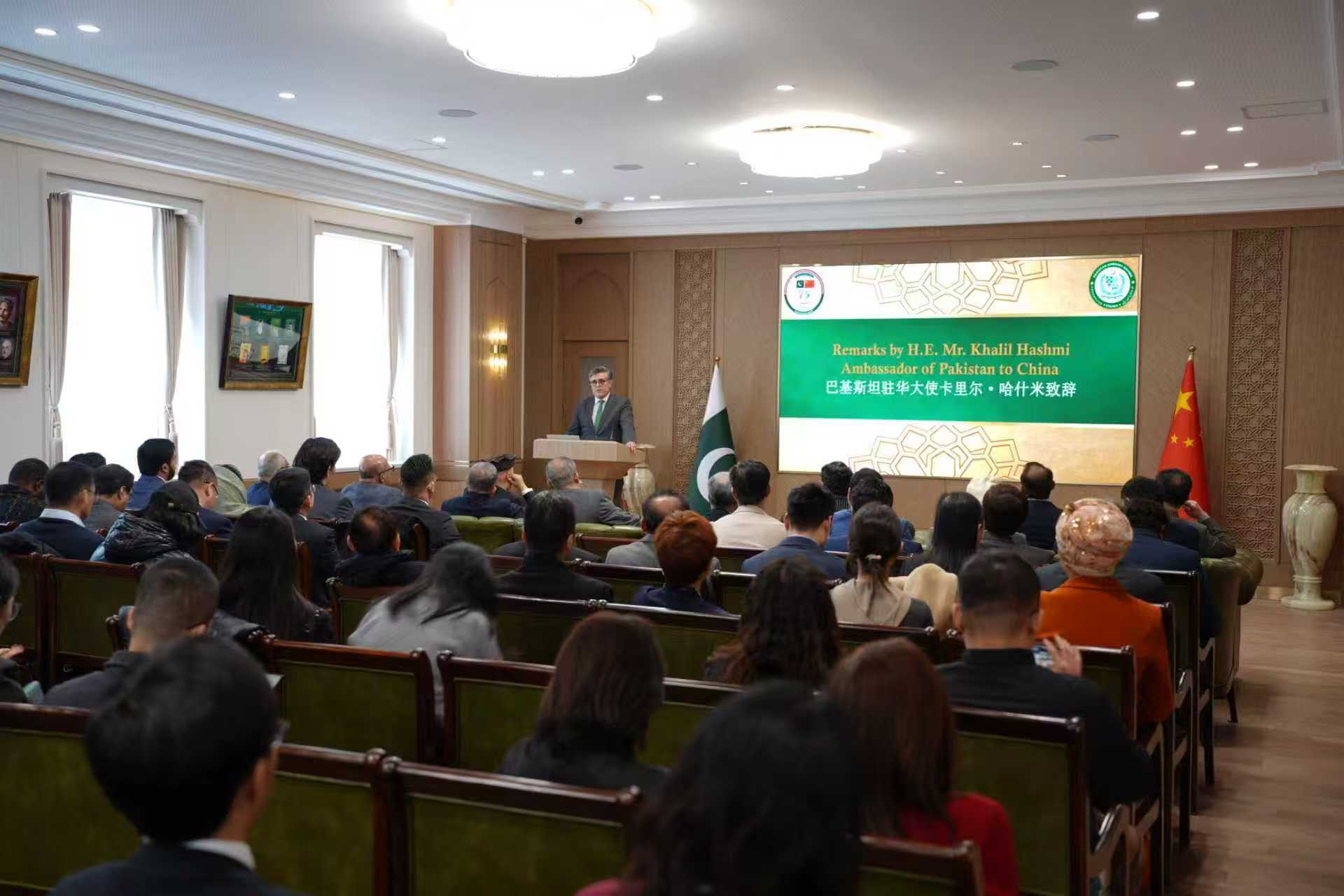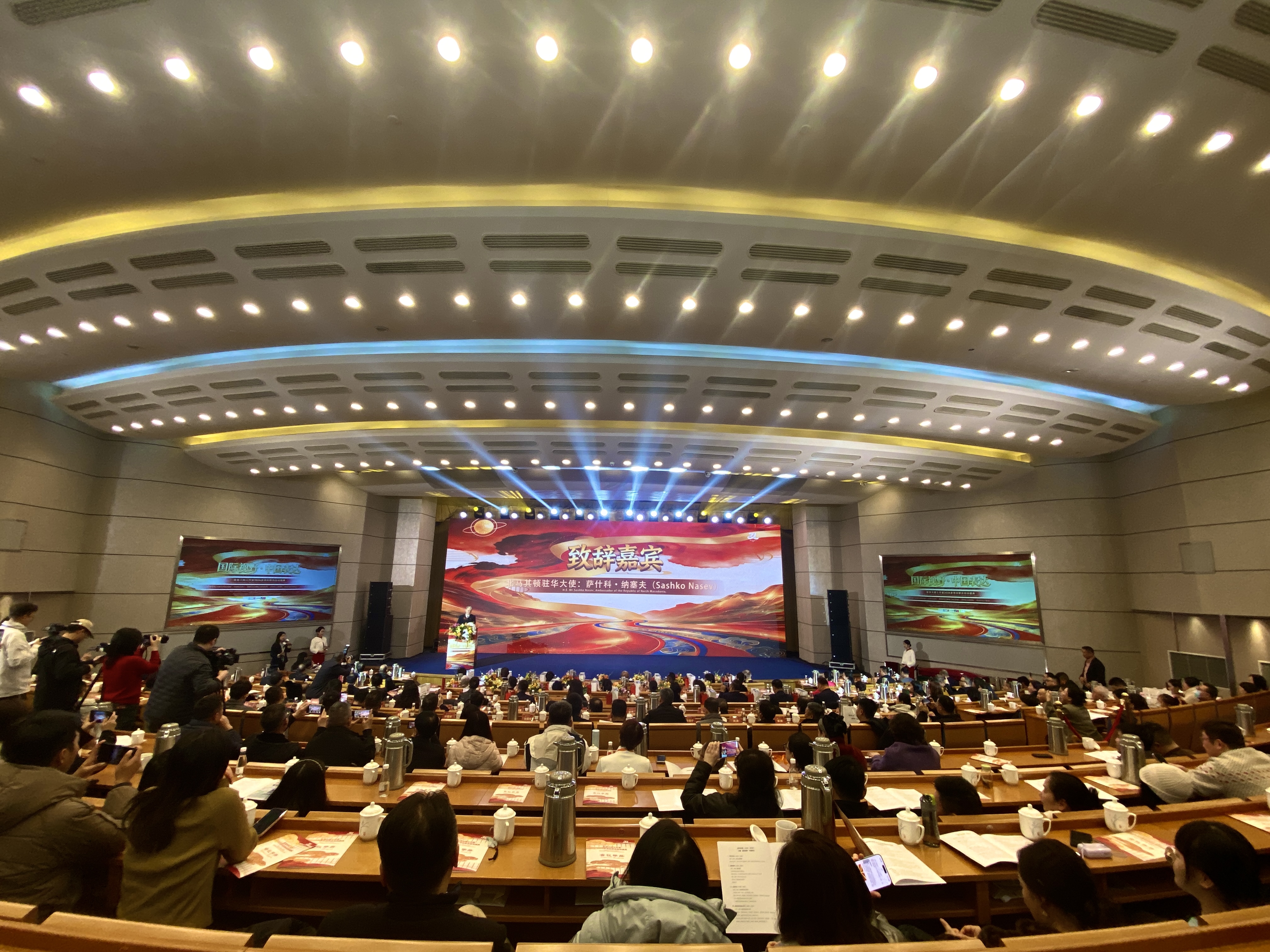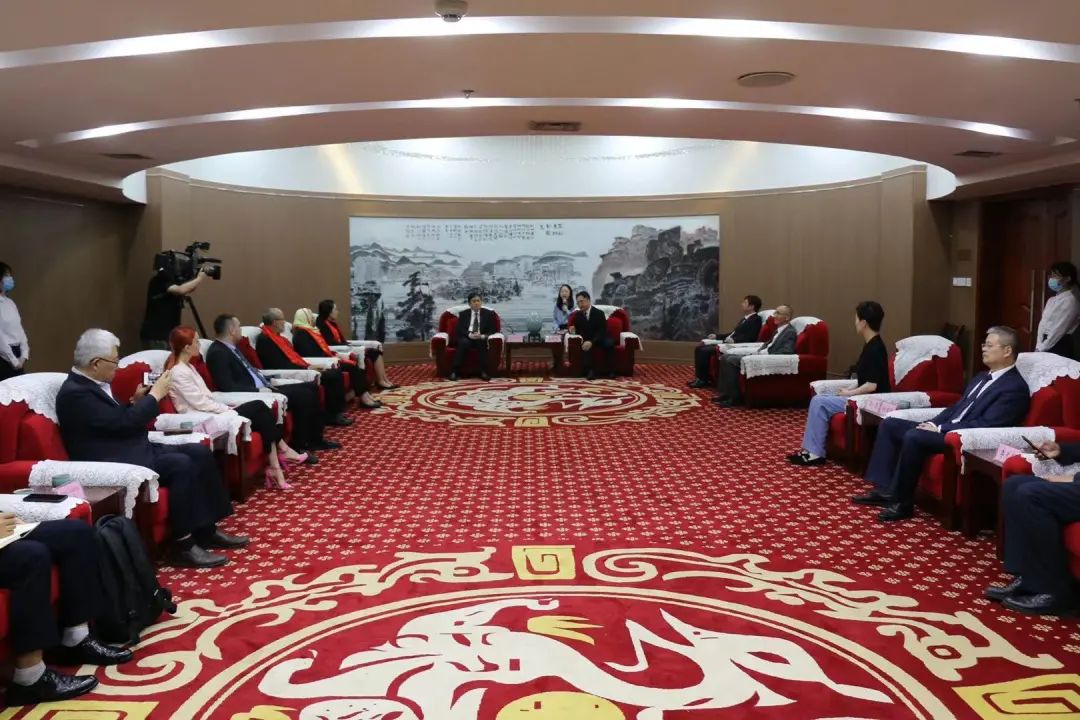Indonesia wants to be the trade hub of the Asia-Pacific

H.E. Soegeng Rahardjo
Already several hundreds of years ago there has been connections between China and Indonesia. This is all a result of the wide interaction along the ancient Maritime Silk Road. H.E. Rahardjo tells that these connections had a deep impact on Indonesia. For example many scholars believe that Islam itself was introduced to Indonesia through Chinese sailors.
An interesting historical figure that rises when talking about Indonesian history is the famous Chinese Admiral Zheng He (郑和) who visited modern-day Indonesia, especially the island of Java, several times between 1400 and the 1460s. Mr. Rahardjo mentions that Zheng He contributed to the establishment of modern Indonesian society by teaching local people farming and bringing new cultural elements to Indonesia.
There is also a strong ethnic Chinese presence in Indonesia. Mr. Rahardjo tells that according to the 2010 Indonesian national census the ethnically Chinese Indonesians amounted around 2 800 000 people. This would make the second largest diaspora of ethnically Chinese in the world after the United States. Nevertheless Mr. Rahardjo is a little sceptical.
“Many sources note and state that the number of ethnically Chinese in Indonesia is larger than reported, maybe around 9% of the whole population. If this were true, the ethnically Chinese in Indonesia would amount 20 million people, which is a very large concentration of ethnically Chinese in the world.”
The modern relations between China and Indonesia are very good. In 2005 both countries agreed to a strategic partnership. H.E. Rahardjo tells that since then the relations have been improving, continuously growing in terms of trade and investment.
This cooperation was even deepened after Chinese President Xi Jinping visited Indonesia in 2013 and signed a treaty that elevated the existing bilateral relation from a strategic partnership to a comprehensive strategic partnership. This has brought even more economic benefits and Chinese tourists to Indonesia.
Chinese investments and technical expertise also play an important role in Indonesia. Mr. Rahardjo mentions for example plans to build a high-speed train between the capital Jakarta and the fourth largest city Bandung.
“The purpose of this project is to have more flow between manpower in the big cities in Indonesia. I believe that if this project is successfully built between Jakarta and Bandung, maybe we will build more and connect the network to the other cities.”

H.E. Rahardjo explaining Indonesian history
H.E. Rahardjo interestingly compares two big projects, or “dreams” as he calls them, started by China and Indonesia. China has the One Belt, One Road initiative, which intends to revive the ancient Silk Road and Indonesia wants to build a so-called World Maritime Fulcrum in order to become a trade hub in the Asia-Pacific region.
“I believe that we should complement each other. We should have synergy between Indonesia and China. China can materialize the One Belt, One Road and Indonesia can also translate this to its World Maritime Fulcrum.”
Mr. Rahardjo also sees that there are many challenges before these two projects can be realized. Nevertheless deep cooperation between Indonesia and would benefit the whole region.
“If we cooperate the benefits will be also contributed to other countries in the Pacific region, not only for our two countries.”
(责任编辑:Ville Vuorensola)版权及免责声明
1、本网转载媒体稿件旨在传播更多有益信息,并不代表同意该观点,本网不承担稿件侵权行为的连带责任;
2、在本网博客/论坛发表言论者,文责自负。
-
 查谟和克什米尔历史与现状研讨会在
2026年2月5日,巴基斯坦驻华使馆举办“查谟和克什米尔历史与现状研讨会”,巴基斯坦使馆外交官和数十位中外学者出席。使馆工作人员首先宣读了巴基斯坦总理夏巴兹·谢
查谟和克什米尔历史与现状研讨会在
2026年2月5日,巴基斯坦驻华使馆举办“查谟和克什米尔历史与现状研讨会”,巴基斯坦使馆外交官和数十位中外学者出席。使馆工作人员首先宣读了巴基斯坦总理夏巴兹·谢
-
 CECTV《声起东方》全球中文经
制片主任:李敏
CECTV《声起东方》全球中文经
制片主任:李敏
- ・《少林点穴的隐秘力量》纪录片在郑州圆满杀青
- ・2025GT世界挑战赛北京亦庄站启幕
- ・北京市侨联召开海外北京会座谈交流会
- ・2025GT世界挑战赛北京亦庄站圆满落幕
- ・短片【未封存的岁月日记】的时代意义
- ・侨智未来·创新人才发展活动举办
- ・2025GT世界挑战赛北京亦庄站筹备进入冲刺阶段
- ・无锡味道 世界共享LA LISTE 2025全球美食
- ・2025“校园星主播”国际展演(韩国站)圆满结束
- ・“勇气少年团”综艺节目开始选拨啦
- ・CECTV《声起东方》全球中文经典朗读节目
- ・美国迈阿密大学访问学者项目
- ・2012第二届中国国际积极心理学大会
- ・首届世界香具文化大会暨高峰论坛在浙江龙泉圆满召开
- ・查谟和克什米尔历史与现状研讨会在京举行
- ・时隔33年重聚首!英达携《我爱我家》原班人马打造新剧
- ・暖意初萌,蓄势而生,国共两党智库论坛在立春时节举办恰
- ・张录工作室2026多项目联合计划在杭启幕 构建文化出
- ・AI漫剧人才评价标准研讨会在京举行
- ・百集电视访谈栏目《健康大讲堂》----磷虾油与健康第
- ・百集电视访谈栏目《健康大讲堂》----特医食品与健康
- ・“汇聚力量·点燃希望”大手牵小手“我和星宝过大年”暨
- ・古巴民族英雄何塞·马蒂诞辰173周年暨菲德尔·卡斯特
- ・以象为维 医艺新章
- ・CECTV《声起东方》全球中文经典朗读节目
- ・“勇气少年团”综艺节目开始选拨啦
- ・2025“校园星主播”国际展演(韩国站)圆满结束
- ・首届世界香具文化大会暨高峰论坛在浙江龙泉圆满召开
- ・2012第二届中国国际积极心理学大会
- ・美国迈阿密大学访问学者项目









